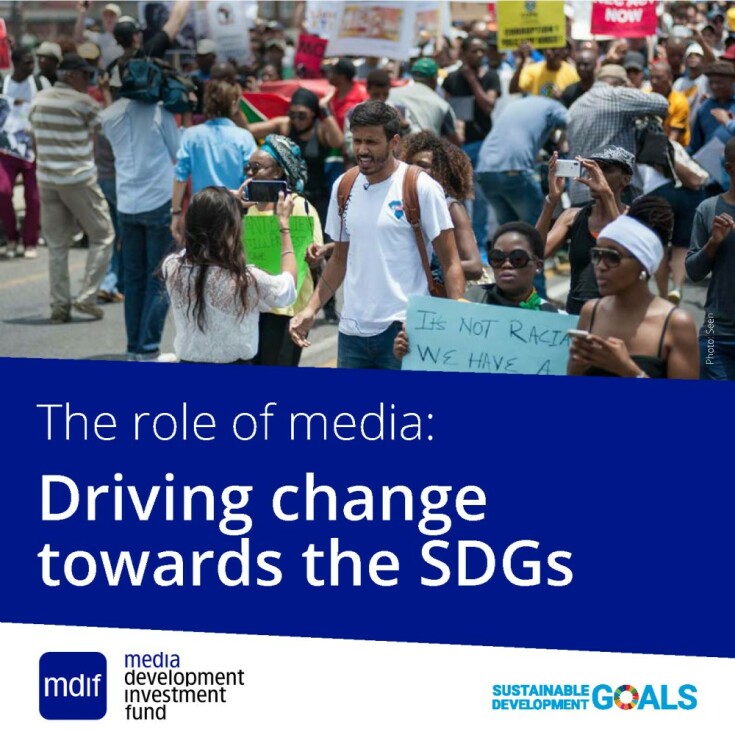The Global Week to #Act4SDGs is a fitting time to discuss the relationship between media and the United Nations’ Sustainable Development Goals (SDGs). Running from 16 to 25 September 2022, #Act4SDGs – an international mobilisation to show global leaders that the world is committed to taking action on key development issues – marks the mid-way point of the SDG Agenda and takes place when world leaders gather at the UN General Assembly.
To mark the occasion, MDIF is publishing a brief that explores the role of media in driving change towards the SDGs. As the struggle to achieve Agenda 2030 takes on ever-greater urgency, the role of independent media in achieving it is crucial.
Over our 26 years of work supporting and investing in independent media around the world, we have seen countless examples of how free media impact on their societies and support all aspects of development. From local news websites to national broadcasters, we have seen MDIF clients play a central role in uprooting corruption, holding those in power to account, encouraging democratic participation and providing citizens with information about social issues that are otherwise under-reported or reported with bias.
Of course the transformative power of media goes beyond our experience. Evidence of the media’s impact is well-documented by scholars in communication, political science, sociology, anthropology and psychology, from research on media effects and influence to work on the role of the media in development and democracy.
In the brief, we take a look at those findings and share some examples that illustrate the relationship between media and the SDGs. This is a wide-ranging connection. Not only are independent media specifically included in SDG 16 (public access to information is included in Target 16.10), but they also support the attainment of other SDGs, acting as a pre-condition for progress and a multiplier that amplifies the change.
“SDG 16.10 on public access to information and fundamental freedoms cannot be achieved without independent media which can help in achieving all SDGs – whether gender equality, climate change, eliminating poverty, reducing inequalities and sustainable cities.”
– Guy Berger, Director for Freedom of Expression and Media Development at UNESCO
We also include some real-world examples that demonstrate the transformative power of media – case studies of impactful journalism and information-sharing by our clients matched to relevant SDG thematic areas. As the specific SDG targets were designed to be reported only at a national level, not by individual organisations, we don’t quantify the impact that each media company is having on achieving a specific goal. Instead, we map journalistic work representative of the SDGs’ aims and provide context that reflects the critical importance of Agenda 2030 and illustrates the overarching transformative role independent media play in achieving a sustainable society.
Lastly, we present a full list of SDGs and associated keywords that can be used to carry out analysis and better understand themes of journalistic and information-sharing work.
Read the full brief, “The role of media: Driving change towards the SDGs” here.
Read our follow-up SDG articles:
